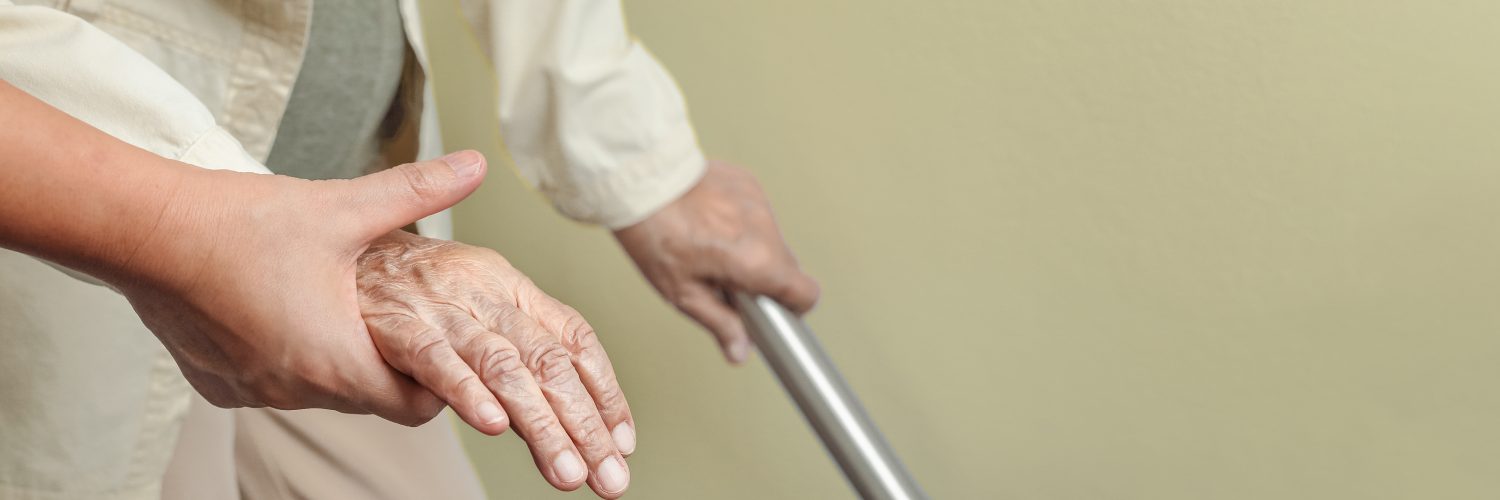Yichud with a caregiver, nurse, or physician of the opposite gender
“…But it was hidden from the eyes of her husband, and she became secluded and could have been defiled…” (Bamidbar 5:13)
We continue our series discussing Halachic issues related to the elderly. In the coming weeks, we will focus on common questions that arise in the context of nursing care. This essay will review the topic of Yichud with a caregiver, nurse, or physician of the opposite gender.
In recent decades, as life expectancy has climbed, many people require care in the later years of life. Since it is not always possible for family members to fulfill the role of caregiver, it has become prevalent to hire others to do the job instead. These caregivers often spend numerous hours with the people in their care.
Is an elderly man to hire a female caregiver due to the prohibition of Yichud? Given that many elderly men become impotent, would that permit seclusion with a woman?
The Shulchan Aruch (E.H. 22:11) rules: “A person may be secluded with a girl younger than the age of three and a boy younger than the age of nine as the Chachamim only decreed that Yichud is forbidden with a woman or man who is capable of sexual relations”. The Zayis Ra’anan (E.H. 1:1) contends that the same should be true of an elderly, impotent man – since he cannot engage in sexual intercourse, he should have no prohibition of Yichud.
On the other hand, one could draw the opposite conclusion from the Gemara in Shabbos (111a) which rules that the prohibition of Sirus (castration) even applies to an old, impotent man. R’ Yochanan explains that since it is theoretically possible for a man to restore his virility through medication, it is forbidden to perform Sirus even to the elderly. The same argument can be made for the prohibition of Yichud. Unlike a girl below the age of three and a boy below the age of nine, an elderly man can theoretically regain the ability to engage in intercourse. Therefore, the Halachos of Yichud should still be in force.
(The Zayis Ra’anan then goes on to say that we should not compare the Halachos of Sirus with those of Yichud. Yichud depends upon the potential for engaging in intercourse; thus an elderly man who has no ability do so would not be forbidden to seclude himself with a woman. The fact that he could theoretically recover his ability should not prohibit Yichud. Sirus, by contrast, permanently inhibits the potential for procreation. Since an elderly man may yet be able to procreate with the use of medication, the act of Sirus is still forbidden.)
Ultimately, the Zayis Ra’anan rules stringently[1] in all cases of Yichud that would be an Issur d’Oraisa (such as seclusion with a married woman). He debates at length whether to be stringent in cases that would only be an Issur d’Rabbanan, but concludes that one should be stringent regardless since all unmarried women are today considered to be Nidos (with whom the prohibition of Yichud is d’Oraisa).
The Tzitz Eliezer (6:40, Kuntres Issurei Yichud 22) disagrees and maintains that Yichud is only forbidden in cases where there is an actual possibility of intercourse. He proves this from the words of the Rambam (Hilchos Issurei Biah 22:1) who rules, “It is forbidden to seclude oneself with any one of the Arayos (women with whom it is forbidden to have sexual relations), whether she be old or young, as this leads to sexual relations.” These words imply that the Chachamim did not forbid Yichud out of concern for other improper activities (such as Chibuk v’Nishuk – hugging or kissing), but purely because of the risk of intercourse. The same is implied by other Rishonim. If so, there is room to be lenient with Yichud for an elderly man who is impotent.
He supports his ruling by citing the Kiryas Melech Rav (the son of the Machane Efrayim, Shu”t 2:26) who permitted an old, impotent man to hug and kiss any of the Arayos! His reasoning is that the prohibition of Chibuk v’Nishuk (even according to those that hold it is an Issur d’Oraisa) is a safeguard from engaging in sexual relations, thus, where intercourse are impossible, Chibuk v’Nishuk is permitted. This would certainly be true of Yichud.[2]
However, the Tzitz Eliezer concludes that it would be better for him to avoid situations of Yichud because of Maris Ayin (giving the appearance of committing a sin). However, if nobody can see him or those who can see him are aware of his physical limitations, it would be permitted.
Elsewhere (7:46:2), the Tzitz Eliezer addresses Rav Elyashiv zt”l who prohibited Yichud with an old, impotent man based on the ruling of the Zayis Ra’anan cited above. He proceeds to refute the proof. In yet another Teshuva (12:67:2), he cites the Chasam Sofer (Drashos, 5564, Drush l’Chanuka) who explains why Yosef was not concerned about Yichud with the wife of Potifar. He notes that the Torah relates that on the day that Yosef was left alone with the wife of Potifar “there was no man (there at the time)” – “v’Ein Ish”. Chaza”l assert that these words also allude to the fact that Yosef saw that “he was not a man” meaning that he had temporarily become impotent. If so, there would have been no prohibition for Yosef to be secluded with a woman at that time as he would have been unable to sin with her.
Rav Moshe Feinstein zt”l (Igros Moshe, E.H. 4:65:10) agreed in principle to the ruling of the Tzitz Eliezer. However, he cautions that it is possible that an old man may suddenly rediscover his virility. Therefore, practically it should only be permitted in cases of a Saris (eunuch) who is irreversibly impotent.
Rav Moshe proves this from the Gemara in Kiddushin (81b) which relates that Rav Chiya bar Ashi would Daven during Tachanun that Hashem should “save him from the Yetzer Hora”. Rav Chiya’s wife, who once overheard this Tefila, expressed surprise for he had already refrained from engaging in marital relations with her for a number of years due to impotence in his advanced age. Which Yetzer Hora could he possibly have been afraid of?
She proceeded to perfume and adorn herself and appeared to her husband while he was learning in the garden. When he asked her who she was she answered that she was a certain promiscuous woman who lived in the area. Rav Chiya wanted to engage in sexual relations with her and she agreed on condition that he pluck a pomegranate for her from the top of the tree. Later, Rav Chiya was filled with immense regret at his act. Though his wife ultimately revealed to him that she had been that woman, he could not be comforted. He sat inside the baking hot oven to atone for his sin and fasted for the rest of his days.
This episode, maintained Rav Moshe, proves that even the elderly who are impotent can rediscover their virility if the circumstances are right. Therefore we cannot be lenient with regards to Yichud unless it has been medically determined that it is utterly impossible for the man to engage in intercourse[3]. We might also add that today, when many medications are available to restore men’s virility, there would be all the more reason to suspect that an old man would be able to rediscover the strength of his youth.
Rav Shlomo Zalman Auerbach zt”l (Shulchan Shlomo 3, p56) also questions the lenient position of the Tzitz Eliezer. He cites Rav Yisrael Zev Mintzberg[4] (Otzar haPoskim 9, Hashmatos, p128) who ruled categorically that Yichud applies to young and old alike as well as a ruling of the Rashba that Yichud applies even to somebody who is deathly ill or in the throes of death.
Therefore, the tendency of current Poskim is to forbid Yichud for all men unless it is certain that they will remain impotent. Accordingly, a male caregiver should be found for an elderly man. [5]
However, the Poskim agree that if cameras are installed throughout the house, there is no issue of Yichud. This is a clever method of not only avoiding Yichud but also monitoring the caregiver. Rav Elyashiv zt”l and Rav Nissim Karelitz zt”l both agreed that closed circuit television cameras on the premises are akin to an “open door to the Reshus haRabim” where there is no Yichud, even if the footage will only be viewed at a later date. [6]
Another common question regarding Yichud arises during medical treatment. If a male patient is receiving treatment from a female doctor – or vice versa – they must ensure that the door is not locked (though it may be closed), and that there are other patients waiting. There is no concern of Yichud in that scenario, as they know that at any moment, somebody may open the door. If there are no others waiting, Yichud would be forbidden unless there are nurses, other caregivers, or staff on the premises. (When visiting outpatient clinics, there is seldom any issue of Yichud as there are always other staff members on site.)
If the door is
locked (this is especially common today when many clinics are equipped with
doors which lock automatically and can only be opened with a “smart card”), Yichud
is forbidden unless one of the following conditions are met:
For a female patient and male physician:
- Her husband is in the city and the physician is aware of it (she can mention this to him in passing).
- She is accompanied by another woman.
- She is accompanied by a male or female child.
- The doctor’s wife is present or on the premises.
- Another person has the key to the room and can open the door from the outside.
For a male patient and female physician:
- His wife, or a child (male or female) accompanies him.
- He is accompanied by another man, particularly if the doctor’s (female) assistant or nurse is present.
- If there is additional female medical staff present, one may be lenient if the patient is accompanied by his daughter (and for Ashkenazim, even if he is accompanied by his sister).
- The patient knows that the physician’s husband is in the city.
- Another person has the key to the room and can open the door from the outside.
HaGaon Rav Asher Weiss Shlit”a (Minchas Asher 1:89) was asked whether a bed-ridden elderly man in a nursing home that was staffed by female caregivers only at night was obligated to transfer to a different facility.
Rav Asher replied that essentially he could be lenient as in the view of the Chavos Yair (73) and other Poskim, Yichud with two women is not Asur Min haTorah. Therefore, in a pressing situation, when the man in question is impotent, he could be lenient as it is only a question of an Issur d’Rabbanan. Moreover, even those Poskim who hold that Yichud with two women is an Issur Min haTorah there is room to be lenient when three women are present, based on the ruling of the Rema (E.H. 22:5). Though the Shulchan Aruch (ibid.) is stringent, the Divrei Malkiel (4:102) rules that one may be lenient as it is a Safek d’Rabbanan. Even Rav Shmuel Wosner zt”l (Shevet haLevi 3:183) who rules stringently, concedes that one may be lenient in a pressing situation.
Therefore,
Rav Asher concludes that me’Ikar haDin, a sick, weak, and paralyzed
person may be lenient in this matter, for it is certainly a pressing situation.
Nevertheless, it is certainly appropriate that his family try to transfer him
to a religious facility where he can enjoy his final years amid careful
adherence to Halacha without compromise.
[1] Based on a Yerushalmi (Sotah 1:2).
[2] The Kiryas Melech Rav and other Poskim caution against Chibuk v’Nishuk since “Mechuar haDavar” – the matter is distasteful, even if it is essentially permissible. However, the Tzitz Eliezer maintains that this description would not apply to the act of Yichud, which would be permitted l’Chatchila.
[3] Rav Moshe even contends that the stringent ruling of the Zayis Ra’anan was only said with regard to a man who has not been medically determined as being thoroughly incapable of ever engaging in sexual relations again.
[4] Also known as the Gri”z Mintzberg (1872-1962). He served as the Ashkenazi Chief Rabbi of the Old City of Jerusalem prior to the War of Independence.
[5] See Sefer Devar Halachah (additions to Chap. 2, No. 9) who cites the Chazon Ish who ruled this way as well as Shu”t Divrei Malkiel (4:102).
[6] See the Kuntres “Moria” (version 367, p148) in an essay by Rav Chanoch Albak who cites these rulings.












